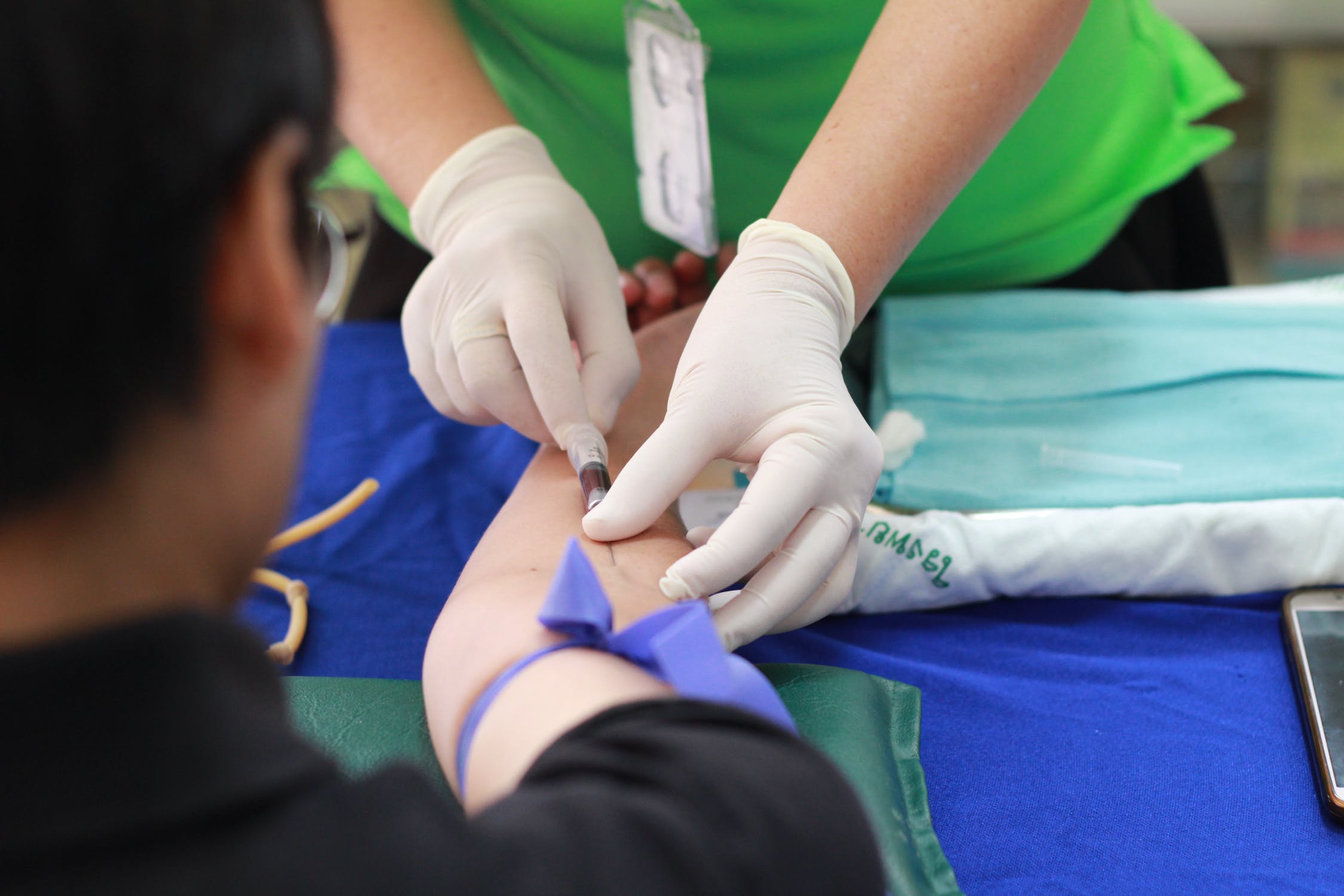The Influence of Blood Type on Health

Two recent genetic studies have indicated that a patient’s blood type is key for how likely he is to develop COVID-19. A study from the Institute of Clinical Molecular Biology in Germany indicated that those with Type A blood were at higher risk to contract COVID-19 with respiratory failure, as well as a protective factor with Type O blood compared with other types. 1 In the second study from 23andMe, genetic data were analyzed from over 800,000 of the company’s customers, wherein it was shown that Type O blood provided a protective effect against acquiring SARS CoV-2 versus all other blood types.(CITE 23 and me study) Patients with Type O were also less likely to be hospitalized with COVID-19. 2 With both studies in mind, the connection between blood type and health may be beneficial to explore for other health issues.
Red blood cell antigens are the determining factor for ABO blood types. When these antigens come in contact with unfamiliar substances (such as the novel coronavirus or bacteria), they trigger the immune response. ABO antibodies are highly reactive. 3 This is the reason why blood transfusions with the wrong blood type can go wrong, or the body whips itself into a cytokine frenzy in reaction to a foreign invader.(CITE ALL THIS) It is these antigens that can put some patients at higher risk of certain health conditions:
Heart disease/Heart attack—The ABO gene that is carried by people with A, B, or AB blood types that may put them at greater risk for cardiovascular disease and/or cardiovascular events. This gene also increases risk for coronary heart disease. Type O blood does not have this gene. For ABO blood types, there may be increased risk for cardiovascular disease if they live in higher pollution areas with greater toxic burden. (CITE) Patients with these blood types should also attempt to consume a heart-healthy diet, get regular physical activity, avoid smoking, and receive regular physical exams.
Cognitive function—People with blood types A, B, and AB are 82% more likely than those with Type O to develop cognition and memory problems, such as dementia. 4 Why this occurs may be due to blood type being a causative factor in hypertension, high cholesterol, and diabetes.
Stroke has also been connected with blood type. To address this increased risk, patients should exercise regularly, reduce or avoid stress, get enough sleep, and see you regularly to identify the early signs of dementia.
Cancer—Blood Type A has been linked to a higher risk of stomach cancer. 5 Additionally, the ABO gene may increase overall cancer risk, and has been linked with prostate, breast, liver, colorectal, and cervical cancers. 6 While there is no explanation as to why this occurs, these patients can reduce their risk by eating a balanced diet, getting consistent exercise, and avoiding smoking.
There is also a predisposition to contracting norovirus for 20% of people with blood types A, B, and AB due to a lack of an H1 antigen, which is necessary for norovirus strains to attach to cells in the small intestine. 7 Whether someone gets sick from norovirus is determined largely by blood type. 7 Interestingly, ABO blood group antigens may be lost in those with hematological cancers such as acute leukemia and myelodysplasia. 3
References
1. Ellinghaus D, Degenhardt F, Bujanda L, et al. Genomewide Association Study of Severe Covid-19 with Respiratory Failure [published online ahead of print, 2020 Jun 17]. N Engl J Med. 2020;NEJMoa2020283.
2. 23andMe finds evidence that blood type plays a role in COVID-19. Available at
https://blog.23andme.com/23andme-research/23andme-finds-evidence-that-blood-type- plays-a-role-in-covid-19/. Accessed July 7, 2020.
3. Dean L. Blood Groups and Red Cell Antigens [Internet]. Bethesda (MD): National Center for Biotechnology Information (US); 2005. Chapter 5, The ABO blood group. Available from: https://www.ncbi.nlm.nih.gov/books/NBK2267.
4. Alexander KS, Zakai NA, Gillett S, et al. ABO blood type, factor VIII, and incident
cognitive impairment in the REGARDS cohort. Neurology. 2014;83(14):1271-1276.
5. Wang Z, Liu L, Ji J, et al. ABO blood group system and gastric cancer: a case-control study and meta-analysis. Int J Mol Sci. 2012;13(10):13308-13321. Published 2012 Oct 17.
6. Rummel SK, Ellsworth RE. The role of the histoblood ABO group in cancer. Future Sci OA. 2016;2(2):FSO107. Published 2016 Mar 15.
7. Nordgren J, Svensson L. Genetic Susceptibility to Human Norovirus Infection: An
Update. Viruses 2019, 11, 226.
